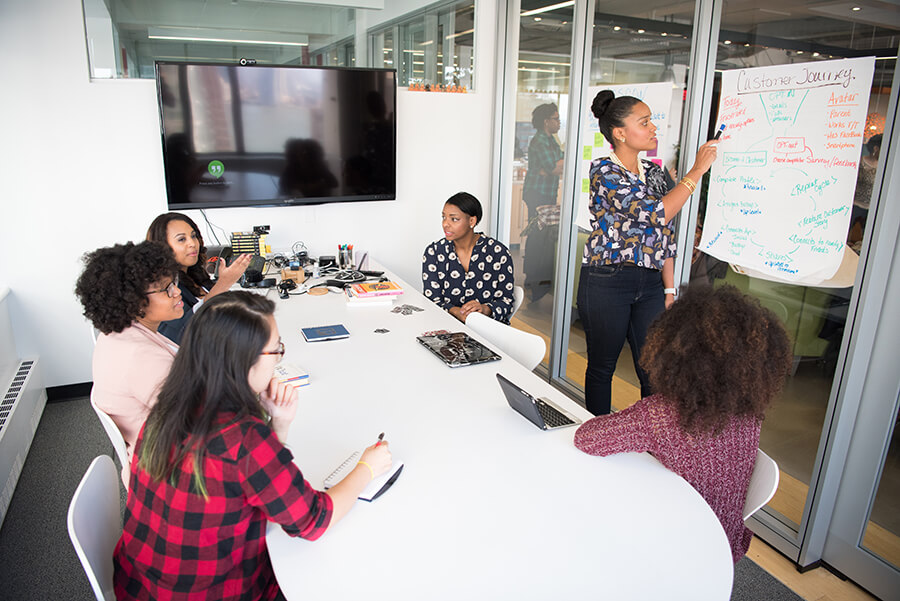If you’re an IT specialist planning to relocate abroad, you should seriously consider Australia. This country will need 100,000 extra employees to meet the growing demand in the ICT sector by 2024, according to a report by the Australian Computer Society.
Australia is a great place to work. Relaxed atmosphere, lack of bureaucracy, long annual leaves, and attractive work/life balance are few of the many upsides of the Australian IT culture.
Office life

You’ll hardly want to work from home in Australia as local offices of IT companies offer their employees the whole array of perks and goodies.
For instance, an office building in a large Australian city may have showers and a dressing room. When it’s hot outside, you can come to work, go to the shower, change into fresh clothes, and start a new working day full of energy.
Office buildings may also have large bicycle parking spaces for employees, especially in Melbourne, which (unlike Sydney, a city of cars) is known for its culture of cycling.
Inside the office, there is normally a kitchen with an unlimited supply of coffee, tea, and cookies. As a matter of fact, coffee is an essential part of the workplace culture in Australia. And people in this country usually take lots of short coffee breaks during the day.
Dress code

Every workplace can have its standards of dress code. For instance, if you work in a FinTech company in downtown, a less casual business style of dressing up may be preferable, and men may be required to wear long pants and button-front shirts, and women may be advised against short skirts and low-cut tops. However, other workplaces may have less strict standards when it comes to dressing.
Even if the company has a dress code, there most likely will be “casual Fridays” when you are encouraged to wear smart casual clothing like jeans.
Communication at work

When you meet your colleagues for the first time, you can shake their hands. For subsequent meetings, a verbal greeting alone is fine.
You will enjoy a relaxed atmosphere of equality and less competitive workplace culture in an Australian office. Local people don’t put much emphasis on office hierarchy. The team matters more than one high-ranking individual.
However, be prepared for lots of jokes, sarcastic comments, and even swearing during meetings. Australians have a great sense of humor and they love it when you show that you’re human. They also tend to be straightforward and direct, they don’t hesitate to speak their mind even in front of their superiors. Avoid offending anyone or starting an argument, though.
You’ll also be surprised at how many slang words Australian use at work. For example, you may hear “doco” (“document”), “preso” (“PowerPoint presentation”), “spready” (Excel spreadsheet), and many more.
Meetings

Team building meetings are periodically held in Australian IT companies. They often start with small talk to break the ice when people talk about sports, beer or personal life (carefully avoiding politics and religion matters) for about 15 minutes.
On Fridays, everyone drinks beer, and that’s fine. The company can even fill the fridge with beer in advance at their own expense. It’s also OK to go out with colleagues on other days of the week to get to know each other and build working relationships.
Working hours

Compared to many other countries, people in Australia usually get to work earlier and start around 8:30 in the morning. However, most IT workers have a flexible schedule.
A normal working day in Australia is 7.6 hours, with a maximum of 38 hours per week, usually worked from Monday to Friday. Hours worked in excess of 38 weekly hours as well as working on weekends or holidays are treated as overtime and paid at a double rate.
Annual leave

All employees in Australia get 20 days of paid annual leave (5 working days × 4 weeks).
To be eligible for annual leave, you need to successfully pass a trial period. Its duration can vary 2 to 6 months depending on the company.
Apart from annual leave, workers in Australia have 8 national holidays as their days off work plus a couple of additional days declared by states or territories.
Sick leave

Workers in Australia are also entitled to 10 days of paid sick and carer’s leaves for each year of employment.
Sick leave is used when the employee gets ill, and carer’s leave is used to care for an immediate family member who is sick or injured. An immediate family member is the employee’s spouse or former spouse, partner or former partner, child, parent, grandparent, grandchild or sibling. Alternatively, it can be a child, parent, grandparent, grandchild or sibling of the employee’s spouse or partner.
If you have used up all your sick leave you may take unpaid sick leave. You have to give the employer notice and evidence in advance.
Layoff

If by mischance you’re asked to leave the company, your employer will give you a notice. The minimum notice period depends on the time you have worked for the company:
- 1 year or less — 1 week
- More than 1 year — 3 years and 2 weeks
- More than 3 years — 5 years and 3 weeks
- More than 5 years — 4 weeks
If you're over 45 years old and have worked for the employer for at least 2 years, you’ll be given an additional week of notice.
The longer you work for the company, the longer the notice period is, because it’s not easy to find a replacement for employees with large work experience. However, you can leave during the notice period if you wish and your employer agrees.
Australian workplace culture may be different from that of the other countries. But you can be sure to find many upsides and growth opportunities there.
Read also:
